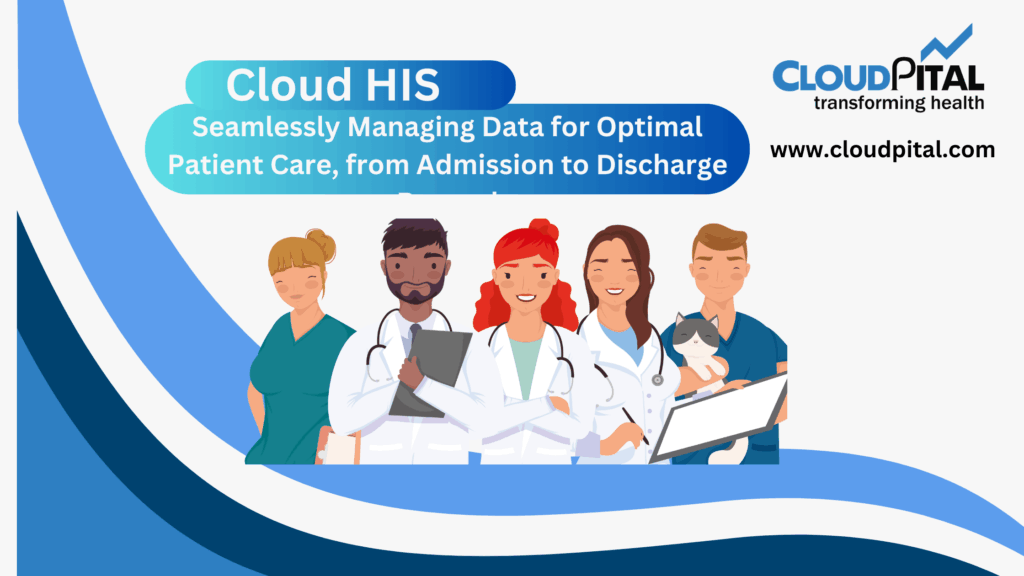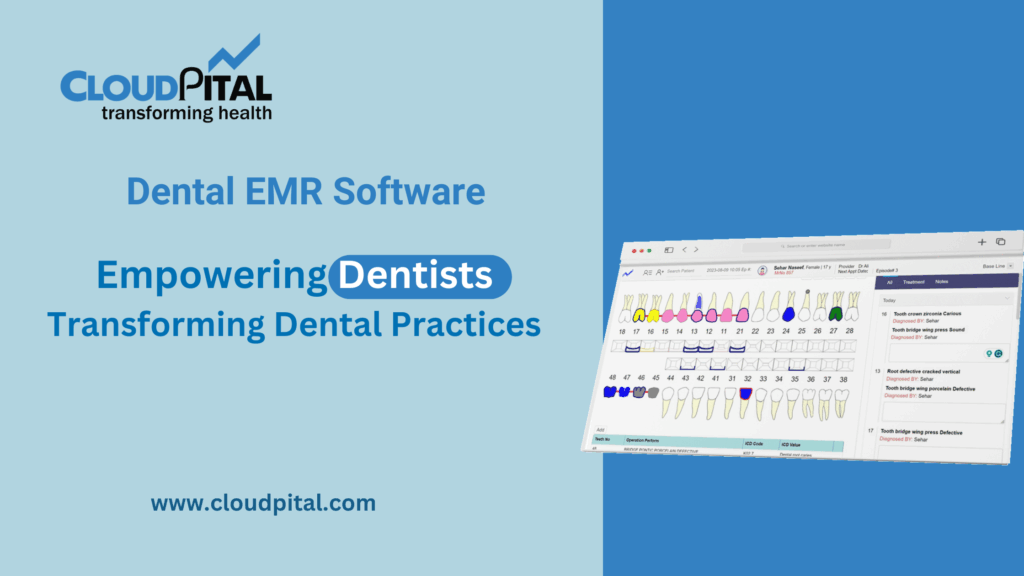Cloudpital # 1 one of the top Medical Solutions to be invented; increase the precision of diagnosis; present smarter, streamlined processes; ensure better patient outcomes; and deliver more cost-effective results. Utilizing AI technologies such as machine learning, natural language processing, and predictive analytics has better prepared healthcare providers in combating the most essential challenges the industry faces. From the best possible initial diagnosis and simplification of routine office work to predictive analysis about patient outcomes and tailored treatment plans, AI is opening up new frontiers of efficiency and innovation in healthcare.
Click to Start Whatsapp Chatbot with Sales
Mobile: +966547315697
Email: sales@bilytica.com
Cloudpital # 1 Medical Solutions

Improving Speed and Acuity of Diagnosis
AI in Medical Solutions can, therefore, greatly save the world by improving diagnostic accuracy and speed. The involvement of computer algorithm to evaluate vast amount of data, including medical images, genetic data, or electronic health records, makes it possible for an AI system to identify patterns that might be too subtle or complex for human clinicians to detect.
For example, artificial intelligence in radiology may analyze X-rays, MRIs, and CT scans to be able to find the initial symptoms of diseases such as cancer, heart diseases, and neurological diseases. It has been proven that sometimes AI can be as precise or even more precise than a human doctor when it comes to medical diagnostics. Early diagnosis made by AI means doctors have the ability to start the treatment sooner in order to improve the prognosis and survival rate.
Making Predictive Analytics and Risk Assessments Possible
AI is particularly useful in predicting parts of risk factors of a patient such that possible health issues can be detected before they happen. A machine learning algorithm can analyze the patient data from the patient’s history and lifestyle factors to genetics so the potential development of those conditions is possible to predict. For example, AI can predict the development of diseases such as diabetes or heart disease so that with the previous prediction and early intervention, preventive care can be applied.
AI predictive analytics also identifies high-risk patients in the hospital environment so that healthcare providers can direct care to those who require it most. The trend of patient data analysis by AI will foresee complications, for example, sepsis and readmission, that will guide healthcare providers in directing resources and reducing preventable adverse events.
Simplification of Administrative Work and Costs Reduction
Administrative burden of a health care organization often prompts reproachful work in minuscule details-from scheduling appointments to processing bills and claims. All of this can be freed up and operational costs reduced through AI-driven automation. For example, NLP could automate the entry of data by extracting the appropriate information from clinical notes and populating electronic health records thus saving both time and the hazard of human error.
In addition, AI can optimize scheduling and resource distribution better through patient flow analysis and peak time predictions. The optimization can enable healthcare institutions to provide more efficient planning for the deployment of staff and resources. These automated tasks decrease the administrative burden on the healthcare personnel, allowing them to spend more on patient care and direct treatment, and hence improve overall operational efficiency.
Precision Medicine: Tailored Treatment Plans
The precision approach to tailored treatments is based on an understanding of the unique genetic makeup, lifestyle, and environment of every Medical Solutions. It is anchored in AI that analyzes large datasets from genetic profiles to clinical histories as well as real-time patient data; thus, the AI algorithms may recommend the personalized options most effective for that patient.
For example, the genetic profiling of a cancer tumor can help in identifying the treatments most likely to work for that patient, including chemotherapy drugs and targeted therapies. Thus, the treatments are more effective and adverse effects are minimized due to one-size-fits-all treatments that may be ineffectual or too extreme for some patients.

Enabling Remote Patient Monitoring and Telemedicine
AI-based remote patient monitoring tools are revolutionizing chronic condition management and post-discharge care by enabling real-time monitoring of a patient’s heart rate, blood pressure, glucose levels, and oxygen saturation from wearables and IoT-enabled health monitoring solutions even outside the clinical setting.
These tools monitor real-time variations and alert PMS providers so that proactive intervention might be taken in due time. For instance, an AI-based remote monitoring system can notify a physician if a patient’s heart rate or blood pressure changes above normal, allowing care adjustments promptly. This would be especially relevant to cases of diabetes or conditions of heart disease diagnosed; this would eliminate readmissions related to chronic diseases in higher care environments and enhance the quality of life of these patients.
Drug discovery and development accelerated
Drug discovery is one such process that has largely been complex, costly, and time-consuming, often taking years before entry into the market of a new treatment. AI is helping in this process, for instance, by analyzing vast datasets to identify potential drug candidates as well as predict their efficacy and the anticipation of side effects. Machine learning models also analyze interactions at the biological and chemical level so that how different compounds will interact with various diseases can be simulated.
Pharmaceutical companies are harnessing AI to predict how patients might respond to drugs based on their demographics and genetic information. In this way, it is saving time and hence the money required for drug discovery, making possible the invention of new drugs and faster delivery of lifesaving drugs to patients. This is most impactful in the area of rare disease treatments, where traditional drug discovery methods are not likely to be commercially viable.
Patient Engagement and Self-Management
Patients are also being driven toward health management through AI-powered applications. Even when cell phone-based health applications have AI-based virtual health assistants, it allows for the tracking of the symptoms patients may be experiencing or chronic conditions and can achieve the insights in health. These applications include reminders for medication, advice on exercise, diet recommendations-reminders all targeted towards a patient’s specific needs.
Virtual health assistants can be used to send reminders for patients to adhere to their treatment plan, answer questions, and provide motivational support. Such interactions are important in maximizing patient adherence to prescribed therapies and support self-management of chronic conditions. AI applications tend to increase patient engagement and self-care in a manner leading to better health outcomes and reduced healthcare costs.
Data Security Compliance
Such AI technologies are resourceful in keeping the observance of healthcare regulations and maintaining data security. Keeping compliance in a healthcare organization’s arena is critical for health care organizations, especially on HIPAA and GDPR.
Access logs are monitored automatically by AI-driven tools, thereby detecting tryouts to access sensitive data without authorization immediately, which can send alerts to administrators in regard to possible security breaches. With the machine learning feature, unusual patterns and flagged risks can be found through which healthcare providers can prevent breaches of data and maintain the confidentiality of patients’ data. With AI, compliance tracking becomes streamlined and strengthened bettering data security, which thereby gives confidence to both providers and patients in digital healthcare solutions.
Advanced Medical Research through Big Data Analytics
It is in this context that AI has opened up new avenues for medical research by allowing researchers to quickly and accurately process large data sets. AI data analysis tools will allow researchers to identify correlations, casual relationships, and trends that are not quite obvious through more traditionally applied methods of research. Some breakthroughs have been crucial in advancing the fields of research on complex diseases such as Alzheimer’s, cancer, and genetic disorders.
In addition to research, AI can support clinical trials. For example, AI can propose the best candidates for such a trial, predict patient outcomes, and monitor adverse effects. By promoting more effective and evidence-based research, AI promotes scientific achievements, offers contributions to evidence-based practice, and makes innovative remedies closer to patients.
Decreased Health Costs and Resources Optimization
It is with such that RCM organizations are put under pressure to achieve the best quality care at minimal cost. AI for medical solutions answer such a problem by ensuring efficient use of resources and operational cost. An example is predictive analytics, which has been seen to forecast rates of patient admission, thus allowing hospitals to streamline staffing and resources. Eventually, this leads to reduced waiting times for patients, avoiding overcrowding, and quality care.
Its ability to process routine tasks frees a lot of labor costs, and it also reduces the possibilities of human error that might result in expensive medical slips. Other reasons why AI reduces healthcare costs is because of early diagnosis and personalized treatment plan strategies developed by AI, which can eliminate hospital stays and sometimes avoid uncomplicated procedures-all of which would translate into significant savings to the providers and patients.
Conclusion
There is immediate change in the medical field with AI offering tremendous possibilities in transforming care for patients, bettering the operational efficiency of health care, and aiding medical research. AI takes its strengths with regard to boosting diagnostic accuracy, making medical treatments more personally oriented, enabling predictive analytics, and automating administrative tasks. The list of benefits resulting from the use of AI within medical solutions is absolutely tremendous and very profound. The more AI matures and develops, the more healthcare will lean upon it to produce novel solutions aimed at resolving issues in modern medicine.
Health-care professionals embracing AI will be able to better improve their patient outcomes, streamline operations, and offer more tailored care. However, it means proper attention also needs to be paid to the ethical considerations, data privacy, and regulatory compliance of AI adoption. With a right balance, it can make health care more accessible, affordable, and effective for patients all over the world and shape a brighter future for global health.
You can explore our other blogs
Medical Solutions, EMR Systems, RCM
What are the benefits of using AI in Medical Solutions? similar software solutions prices were updated on 2025-07-11T08:56:15+00:00 in Saudi Arabia in Mecca, Medina, Riyadh, Khamis Mushait, Yanbu, Jeddah, Dammam, Unaizah, Uqair, Ha’il, Ta if, Al Bahah, Dhahran, King Abdullah Economic City, Najran, Diriyah, Qatif, Khafji, Jubail, Abqaiq, List of Cities and Towns in Saudi Arabia, Ras Tanura, Turubah, Jazan Economic City, Knowledge Economic City, Medina, Khobar, Abha, Tabuk, Saudi Arabia, similar software solutions prices were updated on 2025-07-11T08:56:15+00:00 We also provide in Saudi Arabia services solutions company in Hafar Al-Batin, Udhailiyah, Al-Awamiyah, Hofuf, Hautat Sudair, Buraidah, Tayma, Duba, ‘uyayna, Saihat, Al-Kharj, Al-ula, Jizan, Rumailah, Ar Rass, Arar, Shaybah, Al Majma’ah, Rabigh, Dhurma, Haradh, List of Saudi Cities by Gdp Per Capita, Badr, Sudair Industrial City, Baljurashi, Shaqraa, Al-Khutt, Habala, Ad Dawadimi, Dawadmi, Layla, similar software solutions prices were updated on 2025-07-11T08:56:15+00:00 Price is SAR 100 and this was updated on updated on 2025-07-11T08:56:15+00:00 similar What are the benefits of using AI in Medical Solutions? software solutions prices were updated on 2025-07-11T08:56:15+00:00 in Saudi Arabia in Haql, Afif, Al-Abwa, Farasan, Al-Jaroudiya, Thadig, Al-Thuqbah, Al Wajh, Almardmah, Al-Zilfi, Muzahmiyya, Prince Abdul Aziz Bin Mousaed Economic City, Tharmada’a, Skaka, Um Al-Sahek, Sharurah, Tanomah, Bisha, Dahaban, Al Qunfudhah, Qurayyat, Saudi Arabia, Ha’ir, as Sulayyil, Al Lith, Turaif, Al-Gway’iyyah, Samtah, Wadi Ad-Dawasir, Az Zaimah, Safwa City, Jalajil, Harmah, Mastoorah, Hotat Bani Tamim, Jabal Umm Al Ru’us, Rafha, Qaisumah, Al-Ghat, Hajrah, Al-Hareeq. Excerpt: Jeddah (also spelled Jiddah, Jidda, or Jedda; Arabic: Jidda) is a Saudi Arabian city located on the coast of the Red Sea and is the major urban center of western Saudi Arabia similar software solutions prices were updated on 2025-07-11T08:56:15+00:00 Price is SAR 100 and this was updated on updated on 2025-07-11T08:56:15+00:00
11-12-2024



